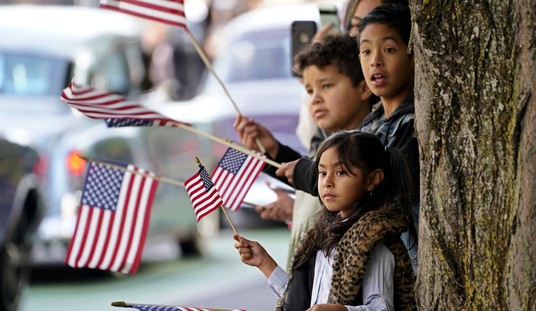Just a word or two to supplement Ed’s post earlier on what Breyer said on GMA. I think (but can’t prove) that he’s firmly in the minority on this among liberals generally and the left wing of the Court in particular. It’s hard for me to believe that there wouldn’t be a single vote in Terry Jones’s defense among Ginsburg, Sotomayor, and Kagan, if only because the analogy to flag-burning (which of course is sacrosanct on the left) is simply too strong. But it’s worth asking: If the left suddenly decided the First Amendment had a “Koran” exception — which would also surely be extended to the Bible, the Torah, etc, in the name of “neutrality” — how would they go about justifying it? Two ways, I think. One: Extend the “fighting words” exception to the First Amendment. That says, basically, that if you utter words “which by their very utterance inflict injury or tend to incite an immediate breach of the peace,” the cops can step in and lock you up for it. It’s one of the very worst doctrines in Supreme Court history, a blame-the-victim nightmare that punishes a speaker for violence that might be visited upon him, but it’s still technically on the books — and the applications to Jones’s case are obvious. One wrinkle is that the doctrine might be limited to face-to-face encounters, which would leave Jones protected unless someone in the actual audience at his book-burning became enraged. But then, maybe that wrinkle no longer applies. Breyer’s whole point this morning was that the “audience” for expressions of speech is now basically global, no?
The other line they might pursue is the ruling in Brandenburg v. Ohio about when a speaker can be silenced in order to prevent him from inciting a riot. That’s slightly different from the case above: In Brandenburg, the fear was that the audience would be inspired by the speaker to commit violence against others whereas in the “fighting words” case the fear was that the audience would be enraged by the speaker and commit violence against him. The Jones situation is basically a hybrid of the two. The Court’s test announced in Brandenburg is that the cops can move in if the speech is “directed to inciting or producing imminent lawless action and is likely to incite or produce such action.” No question that Jones’s book-burning was likely to produce jihadi nuttery — proving that likelihood, in fact, was one of the points of his stunt — so the issue would be whether the burning was “directed” at inciting jihadis. Presumably the answer is no since Jones never said he wanted anyone to get hurt, but then we’ve seen everyone from Mika Brzezinski all the way up to Barack Obama suggest that Jones, and not jihadi reactionaries, was the one who was “endangering” people by his actions. If you know for a fact that fundies will go berserk if you say something, can intent be inferred from your willingness to say it anyway?
Long story short, there is precedent for jailing people whose words are likely to cause violence, and the flag-burning cases, in theory, could be distinguished on that ground. It’s precisely because Americans are civil to each other and don’t usually react violently to flag-burnings that the “fighting words” and Brandenburg doctrines don’t really come into play. Add in the fact that, per what the president said about the troops, there are national security implications for offending Islamic radicals and suddenly you have a compelling government interest in shutting down Koran-burnings. (That was one of the four factors in United States v. O’Brien, another seminal free-speech case describing when the government can intervene to prohibit symbolic speech, like burning draft cards. In theory, the feds can’t act if they’re targeting the message being sent rather than the act of burning itself, but as I’ve argued above, there may be offsetting considerations to that in a Jones situation.) I’d be interested in hearing more from lawyers about this; these are all landmark cases I’m citing, but the jurisprudence has developed since then so there may be new wrinkles in the case law which prevent anything like banning a Koran-burning. Exit question: Breyer reminds us that you can’t yell “fire” in a crowded theater. What if there is a fire?









Join the conversation as a VIP Member